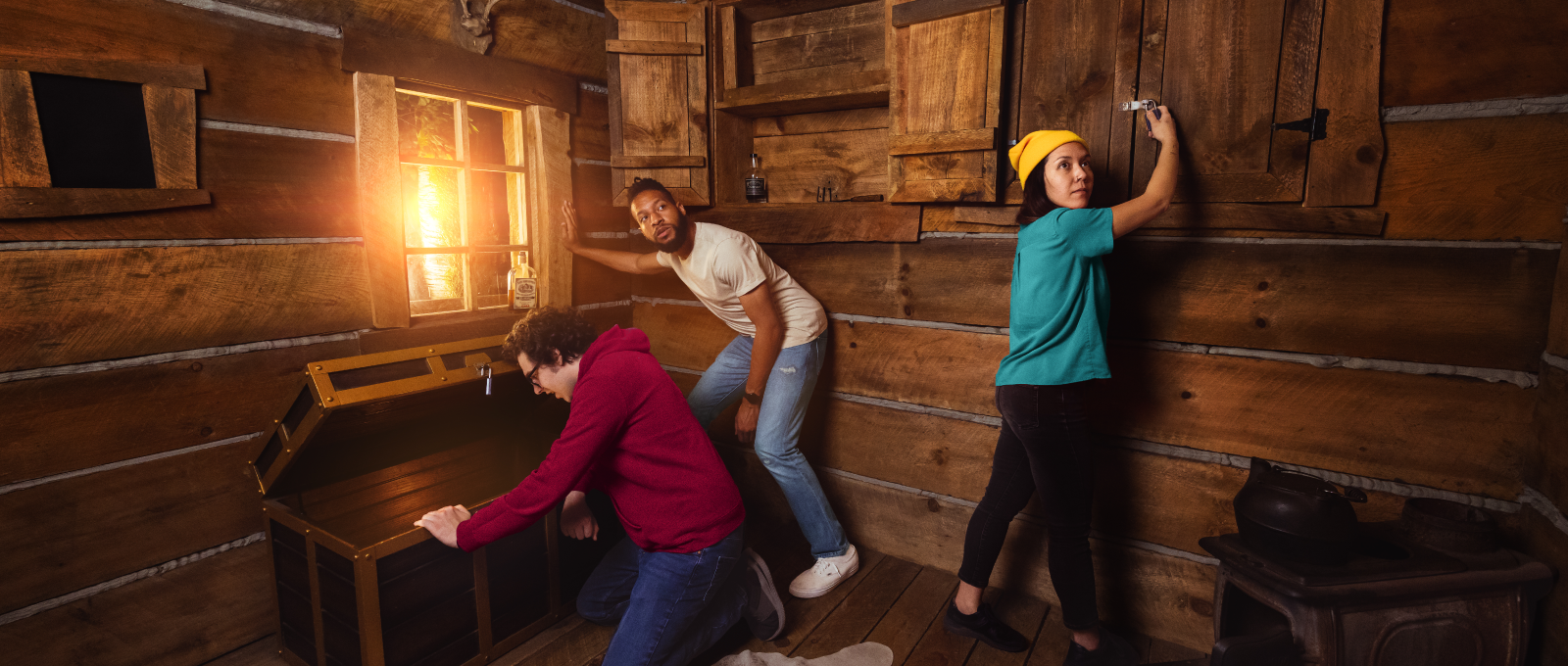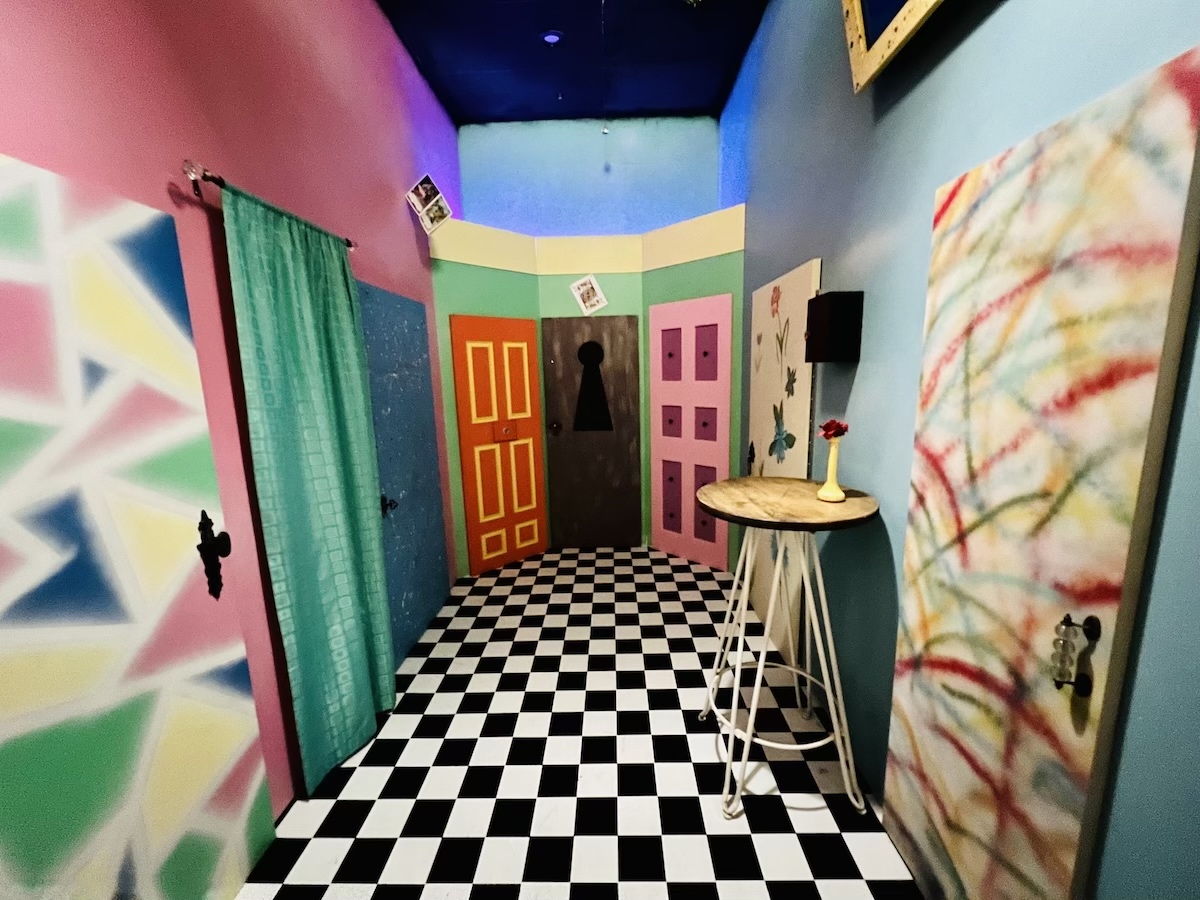Group Approaches: Exactly How to Work together Effectively in an Escape Room
Navigating the complexities of a getaway area demands even more than simple enthusiasm; it needs a well-coordinated technique grounded in clear interaction, tactical function assignments, and skilled time administration. Groups should actively pay attention to every member's insights, designate functions that align with individual strengths, and preserve regular check-ins to ensure emphasis and stop redundancy. By cultivating a setting that values cohesion and flexibility, groups can substantially heighten their effectiveness and success prices. The subtleties of these techniques can transform the experience, but how specifically can they be executed to make the most of the capacity for success?
Establish Clear Communication

To assist in clear interaction, it is crucial to designate a central point of contact for info circulation. This function includes summarizing searchings for and suggested methods to guarantee every person stays on the same web page. Furthermore, adopting a systematic approach to conversations can prevent disorderly exchanges. Quick, focused updates from each group participant can keep the group notified without frustrating them with information - best escape room.

Designate Roles Strategically
While clear interaction establishes the structure for effective synergy, designating functions tactically guarantees that each employee's toughness are used successfully. In an escape area scenario, the time-sensitive and complex nature of difficulties necessitates an efficient approach to job delegation. By identifying and leveraging specific competencies, teams can enhance their analytic abilities and enhance overall efficiency.
First, evaluate the one-of-a-kind skills and attributes of each participant. Someone with an eager eye for information might succeed in finding covert objects, while a rational thinker could be much better suited to solving challenges. It's similarly crucial to have a leader that can supervise progress, take care of the timeline, and make definitive telephone calls when necessary. This role frequently requires strong organizational and social skills.
2nd, make certain that functions are adaptable and adaptable. As new obstacles emerge, the team should be able to pivot, reapportioning jobs as called for. This flexibility helps maintain momentum and avoids bottlenecks that can occur due to rigid duty jobs.
Eventually, a tactical method to function project not just takes full advantage of the staminas of each staff member but additionally promotes a cohesive environment, driving the team towards a successful retreat.
Make Use Of Diverse Skills
Recognizing and using the varied skills within your group can dramatically raise your efficiency in a getaway room. Each employee brings special staminas to the table, and successfully leveraging these capabilities can expedite analytic and improve total efficiency. A team participant with strong analytical skills could excel continue reading this at decoding complex codes or patterns, while an additional with eager empirical abilities may quickly identify hidden hints that others could ignore.
Urge team members to voice their insights and concepts immediately, making certain that all possible solutions are considered. Furthermore, designating tasks that line up with each participant's toughness can prevent traffic jams and make certain that development is constant.
Additionally, variety in skills often equates to diversity in thinking designs, which is vital in a getaway useful site space setting. While some challenges might require sensible thinking and precision, others might gain from imaginative and side thinking. By acknowledging and leveraging this diversity, groups can deal with a wider variety of difficulties more efficiently, thereby increasing their opportunities of an effective retreat.
Manage Time Effectively

First, designate first mins for a quick survey of the room. Identify visible puzzles and divide jobs based upon employee' staminas, making sure that no one is idle. Set internal time checkpoints to evaluate progress occasionally; for example, purpose to have half the problems addressed by the mid-point of the video game. This method can help maintain the group focused and avoid time from escaping unnoticed.
Additionally, avoid tunnel vision. If a problem is taking as well long, rotate employee or relocate on to an additional difficulty, returning later on with fresh point of views. Interaction is critical-- keep everybody updated on addressed puzzles and continuing to be tasks to prevent redundant efforts.
Finally, utilize any type of tips or ideas moderately however purposefully - best escape room. Understanding when to request for help can conserve useful time. By adhering to these time administration concepts, groups can considerably boost their chances of an effective and satisfying getaway space experience
Debrief and Reflect
Representation is a vital element of group development and improvement in the context of retreat rooms. When the challenge is finished, whether efficiently or not, it is essential for the team to take part in a structured debriefing session. This process permits employee to examine their efficiency, recognize strengths, and determine areas for enhancement.
Start the debrief by discussing what went well. Highlight particular circumstances of reliable interaction, problem-solving, and partnership. Identifying these favorable behaviors reinforces them and urges their repetition in future challenges.
Next, attend to the barriers experienced. Go over minutes of complication, miscommunication, or inadequate strategies. Encourage an open and positive discussion where employee can share their point of views without anxiety of objection. This cultivates a culture of continuous improvement and discovering.
Verdict
In final thought, effective partnership in an escape area is predicated upon clear see page interaction, tactical duty tasks, the reliable usage of varied skills, and competent time monitoring. By creating a natural and adaptive team setting, the probability of efficiently resolving problems and accomplishing the goal of escaping the room is considerably improved.